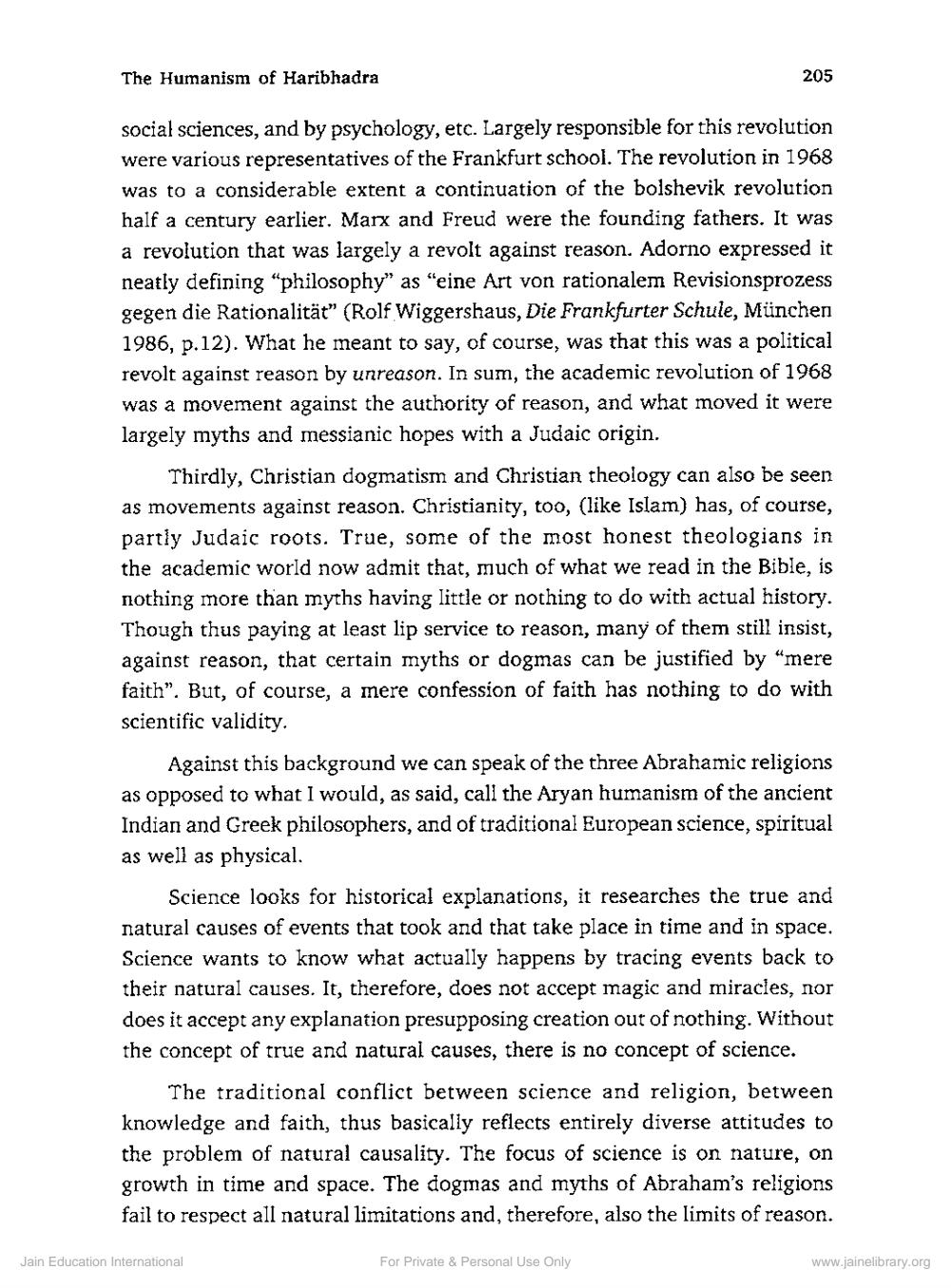Book Title: Humanism of Haribhadra Author(s): Christian Lindtner Publisher: Z_Nirgranth_Aetihasik_Lekh_Samucchay_Part_1_002105.pdf and Nirgranth_Aetihasik_Lekh_Samucchay_Part_2 View full book textPage 3
________________ The Humanism of Haribhadra 205 social sciences, and by psychology, etc. Largely responsible for this revolution were various representatives of the Frankfurt school. The revolution in 1968 was to a considerable extent a continuation of the bolshevik revolution half a century earlier. Marx and Freud were the founding fathers. It was a revolution that was largely a revolt against reason. Adorno expressed it neatly defining "philosophy" as "eine Art von rationalem Revisionsprozess gegen die Rationalität” (Rolf Wiggershaus, Die Frankfurter Schule, München 1986, p.12). What he meant to say, of course, was that this was a political revolt against reason by unreason. In sum, the academic revolution of 1968 was a movement against the authority of reason, and what moved it were largely myths and messianic hopes with a Judaic origin. Thirdly, Christian dogmatism and Christian theology can also be seen as movements against reason. Christianity, too, (like Islam) has, of course, partly Judaic roots. True, some of the most honest theologians in the academic world now admit that, much of what we read in the Bible, is nothing more than myths having little or nothing to do with actual history. Though thus paying at least lip service to reason, many of them still insist, against reason, that certain myths or dogmas can be justified by "mere faith". But, of course, a mere confession of faith has nothing to do with scientific validity. Against this background we can speak of the three Abrahamic religions as opposed to what I would, as said, call the Aryan humanism of the ancient Indian and Greek philosophers, and of traditional European science, spiritual as well as physical. Science looks for historical explanations, it researches the true and natural causes of events that took and that take place in time and in space. Science wants to know what actually happens by tracing events back to their natural causes. It, therefore, does not accept magic and miracles, nor does it accept any explanation presupposing creation out of nothing. Without the concept of true and natural causes, there is no concept of science. The traditional conflict between science and religion, between knowledge and faith, thus basically reflects entirely diverse attitudes to the problem of natural causality. The focus of science is on nature, on growth in time and space. The dogmas and myths of Abraham's religions fail to respect all natural limitations and, therefore, also the limits of reason. Jain Education International For Private & Personal Use Only www.jainelibrary.orgPage Navigation
1 2 3 4 5 6 7 8 9 10 11 12 13 14 15 16 17 18 19 20 21 22 23 24 25 26 27 28 29 30 31 32 ... 66
